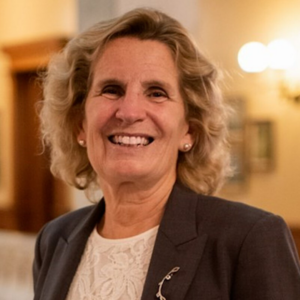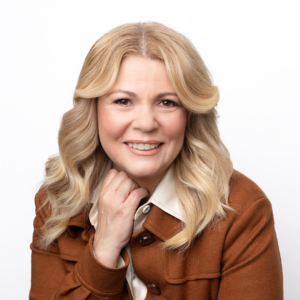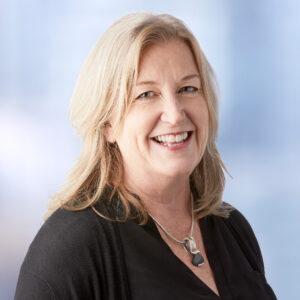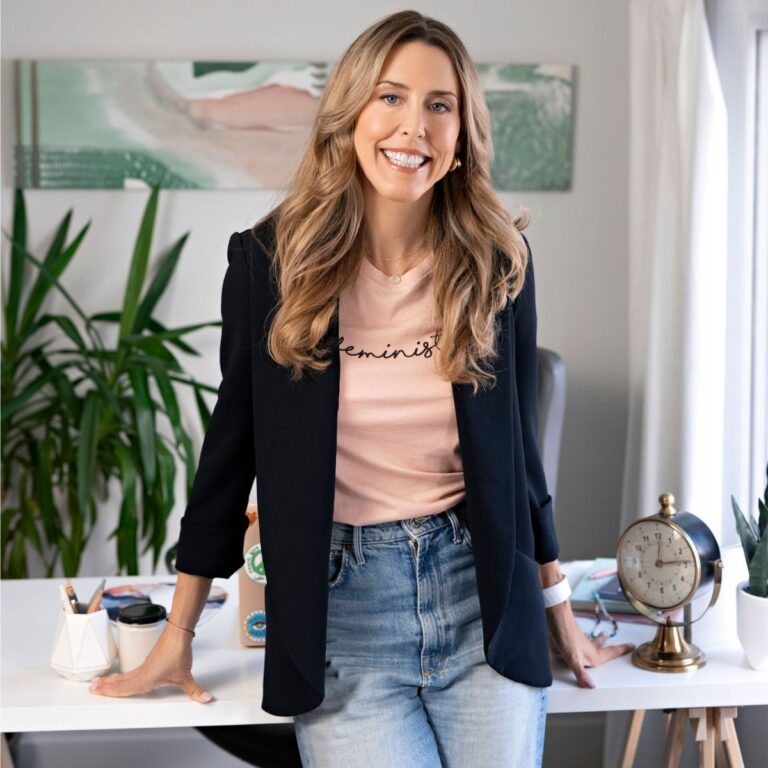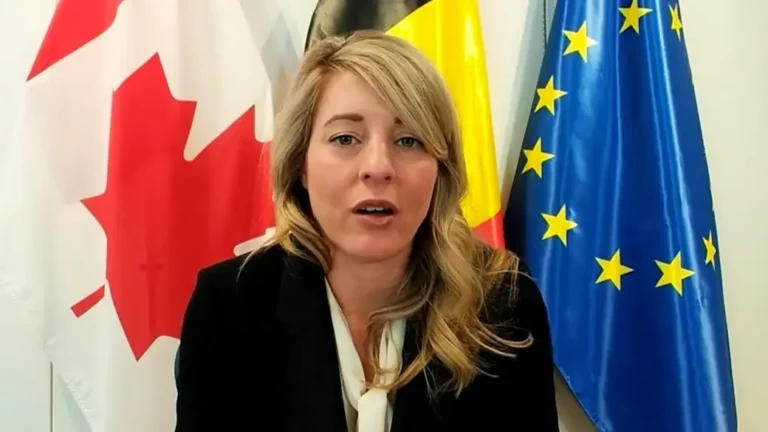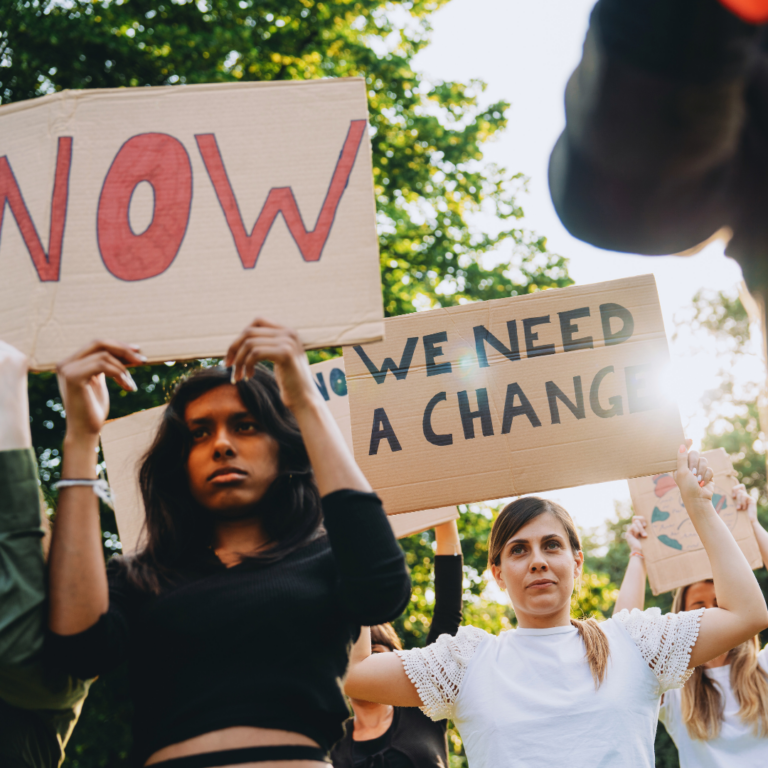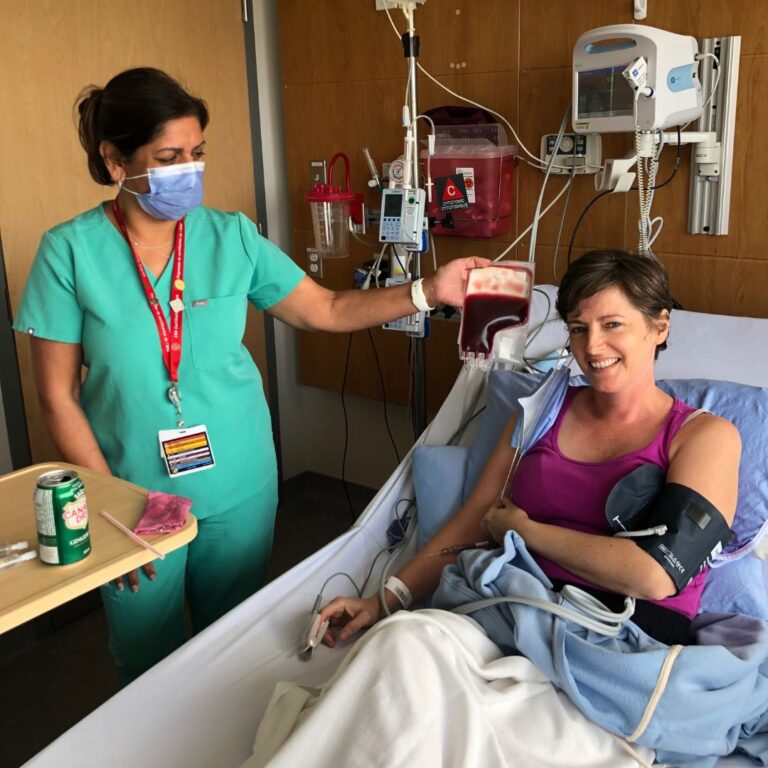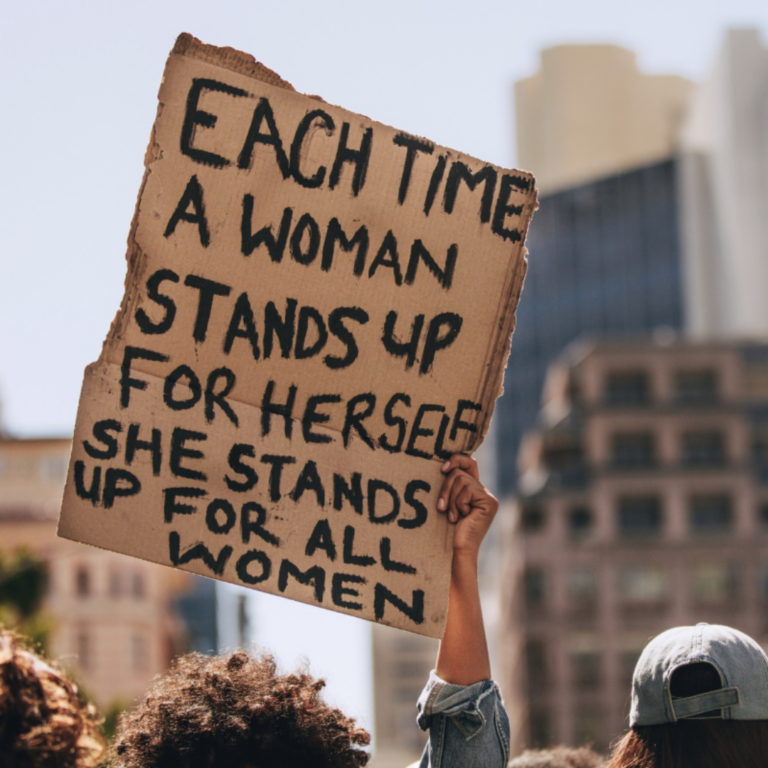Annamie Paul — Former leader of the Green Party of Canada
Annamie Paul is the Leader of the Green Party of Canada. She speaks four languages, has degrees from the University of Ottawa and Princeton, and is a wife, a mom, and a lawyer. As the first Black Jewish woman to lead a federal party in Canada, she inspires people of all political stripes. Still, she remains deeply committed to encouraging women, Indigenous people, Black people, and people of colour to run for elected office. In this candid conversation, she reveals herself to be humble, funny, intelligent, and honest — exhausted by the non-stop schedule required by her new job but firmly committed to making a tangible difference in the lives of Canadians.
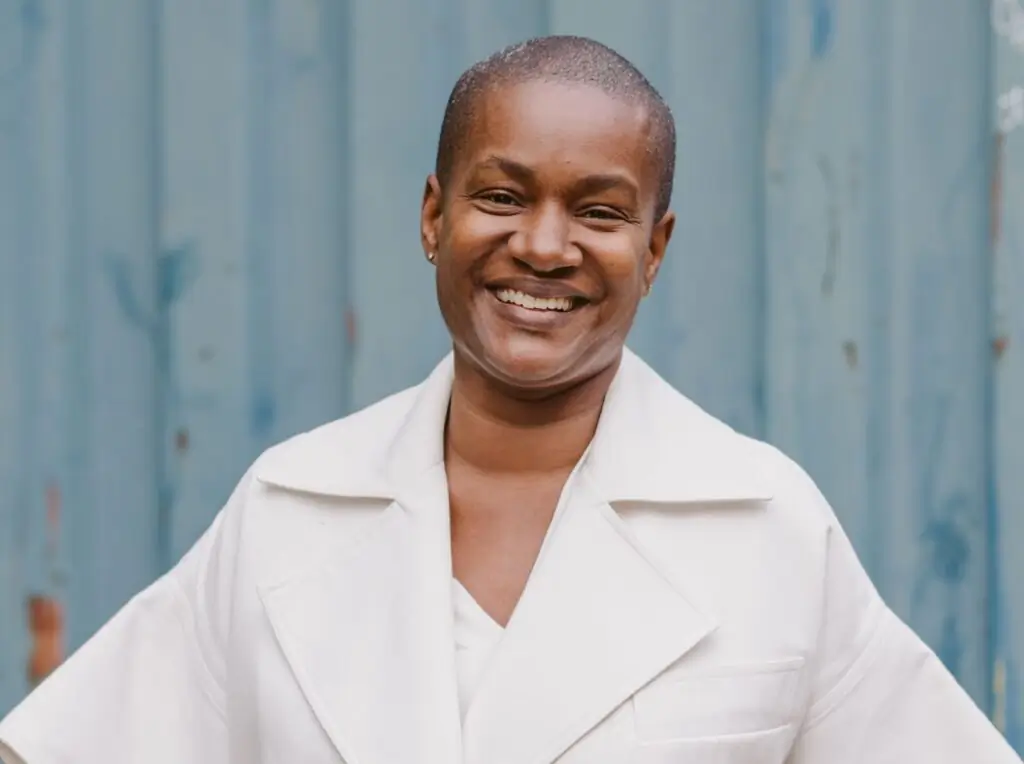
How she got into politics
Catherine Clark: When we asked if you were comfortable with us calling you Annamie rather than Ms. Paul, you said that doesn’t happen often, that people generally would refer to male political leaders by their last name. That’s got to be kind of frustrating. How do you feel about it?
Annamie Paul: It’s not so much about wanting the formality of the Ms. Paul, it’s more about the fact that I represent a party and its members and it’s nice to have that recognized in the way that I’m addressed. And indeed, it should be the same courtesy for everyone.
I love being called Annamie, of course, I like my name and I think my parents did a good job of picking it. But at the same time, there is sometimes a kind of informality that can be frustrating when it’s being applied unequally. It’s nice to be asked.
Jennifer Stewart: If I’m correct, you were a page in the Ontario Legislature when you were 12. Is this when you got bitten by the political bug?
Annamie Paul: No. The abiding interest I have always had is public policy and a strong belief in what can be done through government and the role of governments in sound public policy and in creating a positive, just society. So that was reinforced.
I was a page when I was 12. As a university student at the University of Ottawa, I did a one-year internship through the Canadian Political Science Association and at the Ontario Legislature after I finished my law studies. It convinced me that I would not be headed into politics anytime soon.
It convinced me that the institutions were important and the work they did was very important, but it wasn’t something that I would want to get involved with at an early age.
Catherine Clark: What made it the right time?
Annamie Paul: I didn’t know if I would ever do it. I knew I did not want to do it then. One of the things that my early exposure taught me was that there was a tremendous amount of value to just having a full life outside of politics — having a career or having a family, just doing all the kinds of things that one does.
It brings perspective because the experience you get through those different life cycle events is what you need to inform your work. And I didn’t want to be a career politician and while there are some very laudable examples of career politicians, I did find that, in general, people who had only ever worked in politics were great public policy people.
And so, for me, what made this the right time was many of things that most women consider when deciding whether to run. My children are older now, my partner has an incredibly flexible job — he’s an international human rights lawyer — and I felt that I had done enough outside of politics so that I would have something to contribute as well, which is the most important thing you have to know about yourself before you decide to do this. I really felt like government is going to play a vital role in the next chapter of our country’s life, and I wanted to see if I could be a part of that.
Why did Annamie pick the Green Party
Jennifer Stewart: What made you align with the Green Party?
Annamie Paul: I really believe that what you want to do when you’re getting involved in politics, if you’ve decided to get involved, is to find a party that is most aligned with your values. You don’t want to be, if you can avoid, it in conflict with your values; I hope that I never even am faced with a situation where I have to say something or do something that I don’t believe because of the party that I belong to.
And so when I decided I was ready to join a political party, that’s what I looked for more than anything — I looked for a party that reflected the values I held dear and that I had shared priorities with. And for me, that was the Green Party.
There was no question that that was my political home — it’s a party that is very grassroots-based, it’s a party that is very cooperative in its style, we’re not hyper-partisan. We’re problem solvers — we’re always looking for innovative solutions to the big problems and challenges of the day. Those things all appealed to me. And, of course, in this moment, with the climate crisis, I wanted to be part of a party was offering a real solution to that as well.
Catherine Clark: Leading a party federally is exhausting at the best of times, and you don’t have the support network that the other major parties do. How did that factor into your decision? You must have known it was going to be a ton of work.
Annamie Paul: I sure did. It has proven to be so; it is aging me daily. It’s a great question because I want your listeners and people to understand this about politics. One of the things I can contribute is being honest and authentic about the experience of doing this kind of work. It is very difficult. The days are very, very long.
There’s no opportunity for balance at all; at least I haven’t been able to find it.
Annamie Paul
It requires a lot of intellectual energy as well. I went into it with my eyes open, but nothing fully prepares you for what it will be like.
You may have seen that the government announced that they were reversing their position on the clawbacks of the Canada Emergency Response Benefits for self-employed people. Many thousands of self-employed people applied for that benefit using their gross income because that’s what they had been told was the criteria, and it turned out it was net income.
And they had been told they would have to repay the entire benefit. In some cases, that was up to $14,000. So, the government reversed that and announced they would not seek that repayment. We had been working on that for months, and we were the first party to ring the alarm bell about that.
At press conferences, you always wonder if it will make a difference. And so having that announcement and having some recipients write to us and tell us what it would mean in their lives, that’s a moment where you say, yep, it was worth it. And so if you can have at least a few of those a month, I think it balances out the rest of the days.
The experience of being a POC in politics
Jennifer Stewart: You’ve been pretty open about facing a lot of racism in your life. How do you deal with that and how are you raising your kids to address racism?
Annamie Paul: It’s the background noise; it’s just a fact of life. And so, you talk about it, you try to make them understand that it should never interfere with their pride in who they are, in their identities. I decided personally that, wherever possible, I was going to try to educate, I was going to try to bridge the gaps, I was going to try to defeat ignorance.
I try to do that every day in big and small ways. And I also told them, though, that if there are people who are unwilling to listen and not ready to change their hateful views, you don’t have to accept that either. You can resist, and call it out. And so that’s what I tried to do as well: if it’s clear that someone doesn’t want to listen, I don’t leave them the space to spew hate without calling it out.
Catherine Clark: Your election as leader of the Green Party is also a symbol; it’s a tangible example to people who may traditionally have felt marginalized from politics that they do have a place there. How do you treat that? It’s a heavy burden to bear and it must also be quite uplifting.
Annamie Paul: It’s both of those things. I know from research and the work I’ve done previously in political under-representation that it makes a tangible difference when people like me are elected to roles like this — it makes people who have been traditionally underrepresented feel more included.
They feel they have a more significant stake in the system, they are more likely to vote, they are more likely to run — it makes a big, big difference. We should all want that, because when we have that diversity in institutions like our Parliament, we actually produce better public policy, and we know that because there’s been a lot of research about that around the world.
On the flip side, it’s unfair that people like me should feel they must represent their entire racial, ethnic, or religious group. The Black community is not a monolith. We have many different points of view, like every community. And so whether I succeed or fail shouldn’t necessarily tell you anything about whether the next Black person will. But I’m aware that that’s how it’s perceived, and so I try to honour the Black community, the Jewish community, and all the communities I belong to, hoping it will be easier for the next person.
Annamie Paul‘s inspiration
Jennifer Stewart: Who has inspired you?
Annamie Paul: There’s so many people over the years. The roots are going to be with your family. My mom and my grandma are both public servants — my mom was an elementary school teacher for many decades, and my grandma had been a nurse in the Caribbean and she was a personal support worker here.
So, there was no question that any children they were raising would be of service in whatever way they chose. So, it was just the patina of my childhood. It’s something that has always been a part of me. Whatever I have done in whatever field, it has always been with the idea of being of service and it really began with their example.
Jennifer Stewart: What gives you hope?
Annamie Paul: I have been so inspired by how people have shown up for each other throughout this pandemic. There was a feeling not too long ago that we were moving more and more and, in a kind of inevitable way, a fatalistic way, towards an individualistic society where it was every person for themselves, or maybe just for you and your family. We were all becoming self-interested and insular, and the pandemic has put paid to that idea.
All the things people have been willing to do to help each other and to protect each other, the sacrifices they’ve made for people they don’t even know, that has given me a tremendous amount of hope for our future. If we can build on that, if we can harness it, there’s nothing we can’t do as a country. We can take that feeling and complete our social safety net, we can tackle the climate emergency, and we can do it all because we’re doing it for each other.
(Note: This transcript has been edited for length and clarity.)

